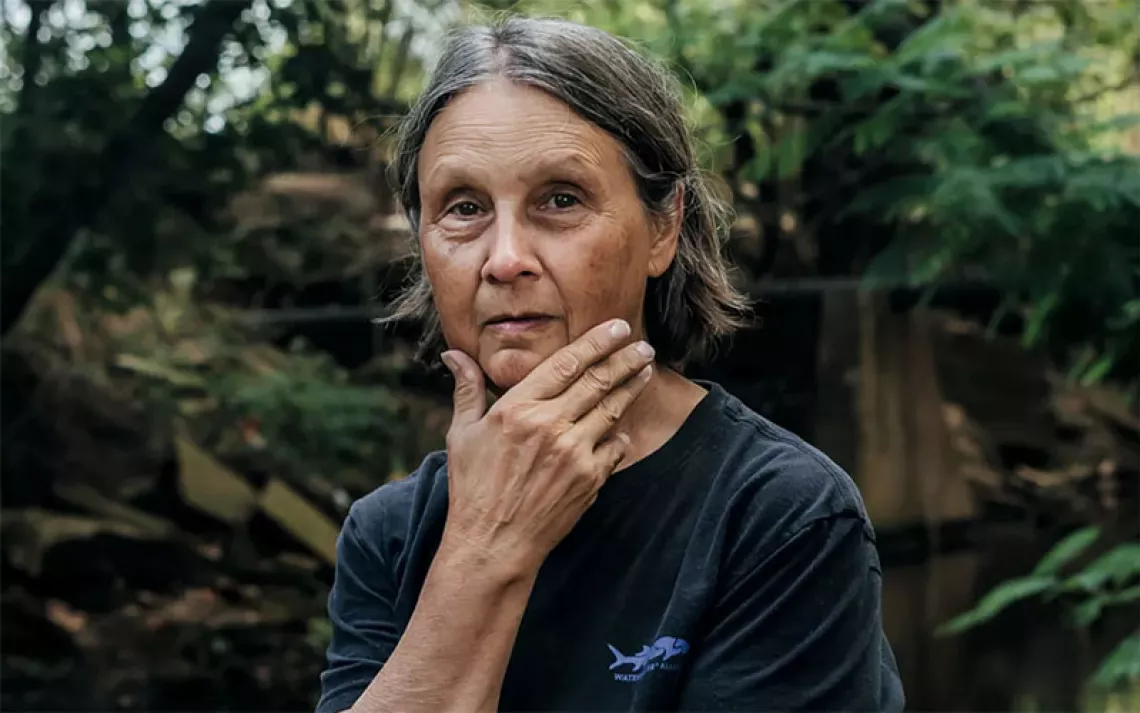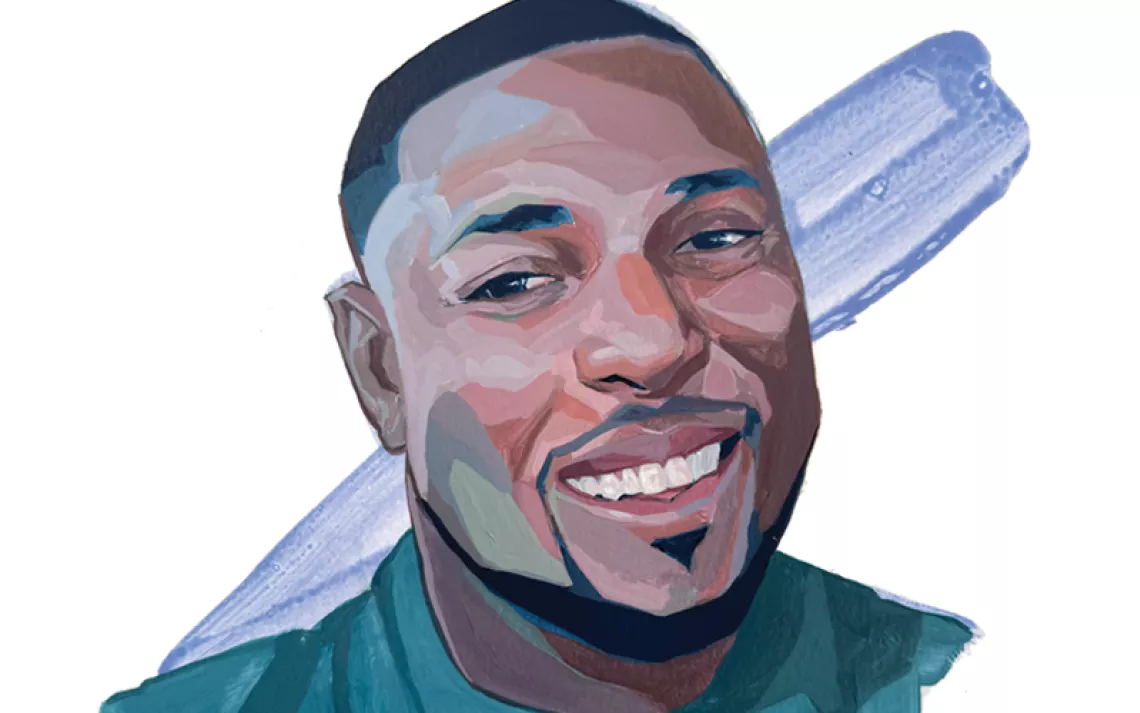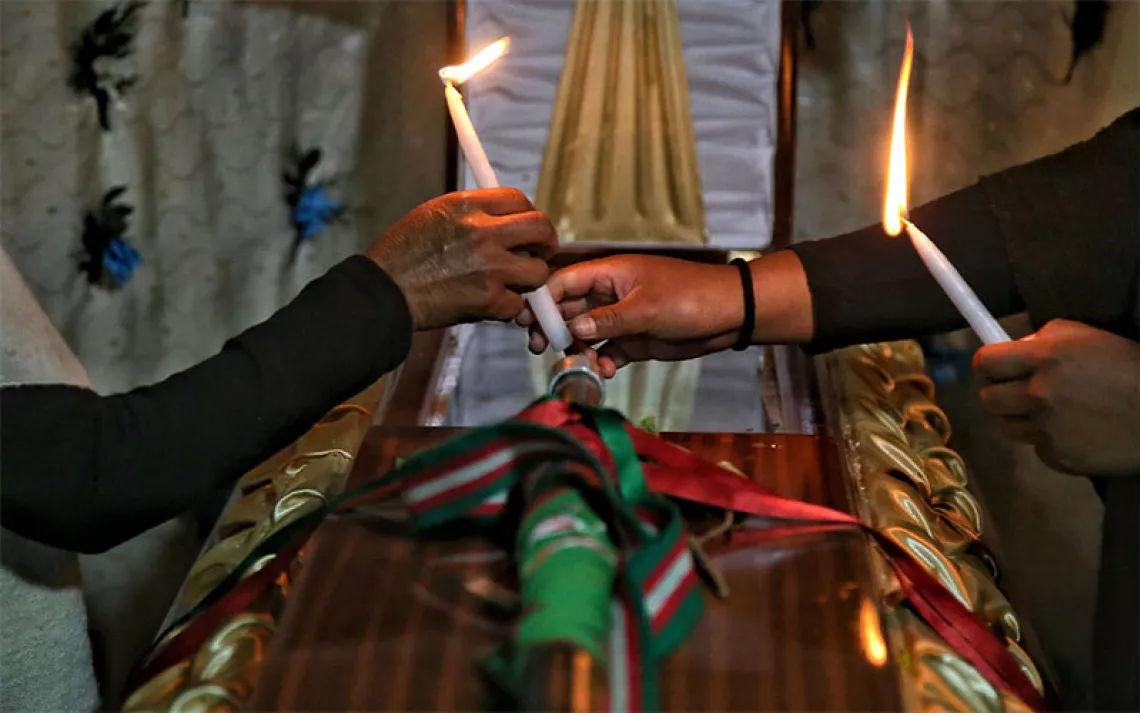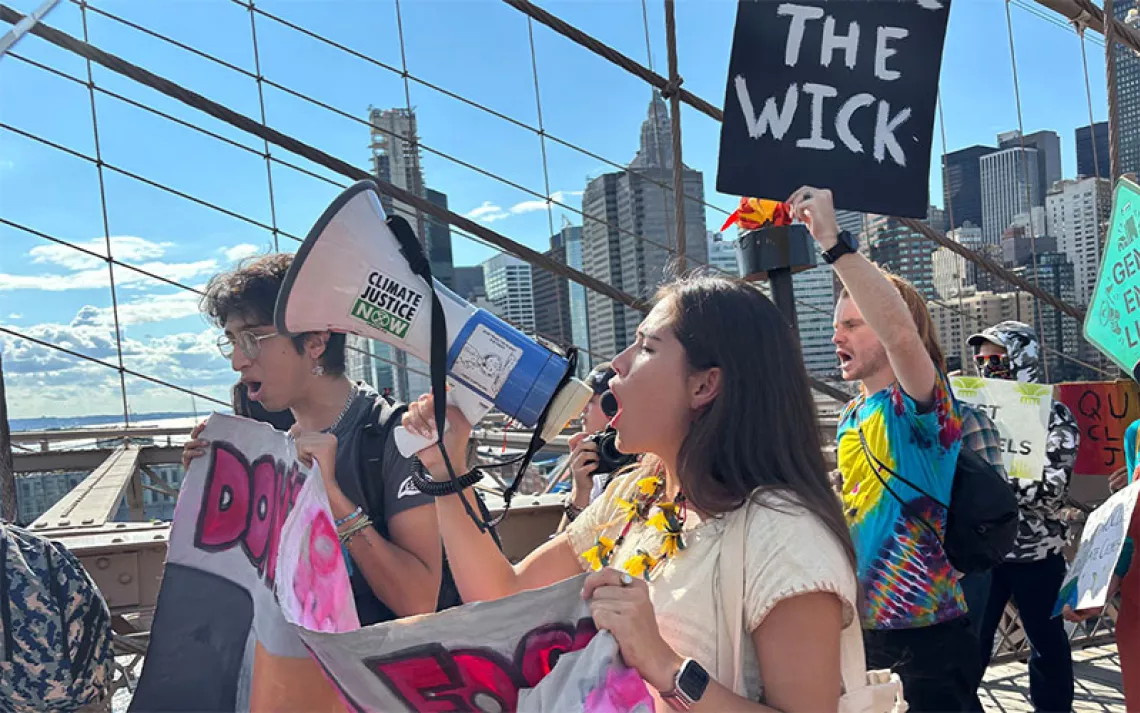It’s Not Activism. It’s Necessity.
Photos courtesy of Goldman Environmental Prize
Marilyn Baptiste, former chief of the Xeni Gwet’in First Nation, won a 2015 Goldman Environmental Prize for helping shut down Taseko Mines Ltd's New Prosperity gold and copper mine, one of the largest mining projects ever proposed in British Columbia. The mine would have destroyed Fish Lake and the surrounding watershed, which is sacred to the Xeni Gwet’in. It took years of blocking Taseko in the British Columbian courts and even physically preventing construction vehicles from entering Xeni Gwet’in territory, but eventually Baptiste and her allies halted the project, defending their aboriginal rights in the process.
Today, Baptiste is still fighting for her people, helping Xeni Gwet'in children caught up in the welfare system and working to end violence against women and girls. Calling from the Xeni Gwet’in government office in British Columbia, she spoke to Sierra about her commitment to defending First Nations’ values on the land and in her community.
You fought the New Prosperity mine at the federal level for years, and in 2011 you stopped Taseko construction vehicles from entering Xeni Gwet’in territory. This work is frequently characterized as grassroots activism in the media. Do you identify as an activist?
Honestly? I do not. In 2012 I did accept the Activist of the Year award from the Council of Canadians. But the truth is, it’s not a choice for indigenous people to be activists. We’re born into a situation where we must stand up for our rights and way of life. We survive by fighting for what we believe.
When did you first become involved in the fight against the mine?
I was involved first as a Xeni Gwet’in community member, then as a leader, beginning with the first court case 25 years ago. In the 1990s, my son would fall asleep in boardrooms. My dad was really involved as well, since he was the Xeni Gwet’in chief.
Your father has shaped a lot of your perspectives on land and leadership. Can you tell me about his influence on you?
I learned a lot from my late dad. He was chief before I was, and he brought my family into our territory’s wilderness. He talked with people from outside our community who had entered our land, asked about their intentions. And that’s just a simple thing I picked up from him. He also told us that water is our most precious resource. We can’t live without it. Nobody can—not even Mother Earth.
In the late 1960s and 1970s, other First Nations were fighting hydropower dams. There was a lot of discussion even then about aboriginal land rights and title, and we didn’t agree with some projects that the British Columbia government had planned. My dad’s work as chief made me ask at a young age: What are our sovereign rights? A part of that answer was simply what we were doing everyday—the right to live is what we’re working for. It’s about being on the land and practicing our culture and values in the way that my parents did with us. Camping, hunting, fishing, gathering berries and medicines. This is my childhood. This is how we understand how to live.
Why are Fish Lake and the surrounding watershed so important to the Xeni Gwet’in people?
It’s pretty simple. It is a spiritual place to us. It’s our home, the home of the grizzly bear and the wild rainbow trout that have survived here for thousands of years. Protecting this land is also about protecting the moose, deer, fish, and all other life that call this place home.
Was the Xeni Gwet’in community united in its opposition to the New Prosperity Mine?
Once, the elders jokingly said [about the New Prosperity Mine] that they would fight this on the road, in wheelchairs, with their shotguns—and they would not move. I’ve used that example when speaking to the media. In the press, these words became fire that spread across Canada. This frightened some of the Xeni Gwet’in community. But our elders said, “It’s about time. They finally heard us.” Other First Nations across British Columbia felt the same way.
Did you have any support from allies?
Cooperation is one of the greatest pieces in all this. First Nations Women Advocating Responsible Mining [a coalition Baptiste co-established] was an ally, and also the Union of British Columbia Indian Chiefs that gave us a platform from which to speak to the media and government. Many other grassroots groups were involved, too.
What are you working on now?
Mining reform is one thing. For Mother Earth and our future, we need to look at how to have effective mining policies. The same goes for other industrial activity. If industry continues as it is, we’ll face major threats to British Columbia resources from projects like the Northern Gateway pipeline [a controversial project aiming to transport oil from Alberta to BC].
I also work with youth and elders on issues within the community. Beginning in the 1960s, the Canadian federal government apprehended aboriginal children from their homes for adoption and attendance at residential schools. It was called the “Sixties Scoop.” Aboriginal children are still overrepresented in the child welfare system—I work with the British Columbian government to restore First Nations’ legal responsibilities for child services. Children are our link to the future, and they are precious. I also work to prevent violence against women and girls. I aim to bring more action and attention toward ending these community afflictions.
 The Magazine of The Sierra Club
The Magazine of The Sierra Club






